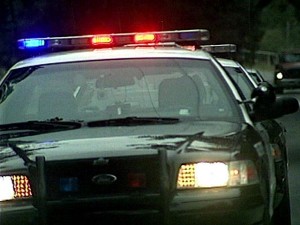BROOKVILLE, Pa. (EYT) — Not surprisingly, texters and tailgaters are the most annoying drivers on American highways.
With tens of millions of drivers expected to hit the road for the upcoming Memorial Day holiday weekend, travel website expedia.com recently released the results of its third annual analysis of driving etiquette.
1,000 adult American drivers were asked their opinions of fellow drivers, including which behaviors they say annoy them the most.

Garnering 22 percent, the “Texter” led the list for the third straight year.
The “Tailgater” followed at 14 percent and the “Last-Minute Line-Cutter” was a close third, garnering 13 percent.
The “Left-Lane Hog” was fourth with 11 percent and there was a three-way tie for fifth at eight percent each for the “Crawler”, “Multitasker and “Swerver”.
The “Speeder” and “Drifter” were tied for ninth at five percent and the “Honker” rounded out the top 10 with three percent.
But alcohol continues to be a significant factor in accidents during the four-day weekend that begins Friday.
In 2015, Pa. State Police investigated 718 crashes, including 13 fatalities. There were 247 injuries with 62 crashes alcohol-related, including two fatalities.
State troopers made 451 arrests for driving under the influence and issued more than 13,000 speeding citations. More than 1,200 people were cited for not wearing seat belts and 306 were cited for not securing children in safety seats.
Also, the survey showed the most common motorist misbehavior is weaving in and out of traffic, which has been witnessed by 80 percent of the American driving public. The second most common offense is “dangerous speeding” (77 percent), followed by “multitasking” (76 percent), being “cut off” (73 percent) and “aggressive tailgating” (68 percent).
Drivers in New York City exhibit the “worst road rage,” according to 43 percent of survey respondents, making it the least courteous driving city in America. Los Angeles ranked second, cited by 30 percent of survey respondents, while Chicago drivers were called out by 16 percent.
A surprising number of drivers still report receiving the middle finger while on the road. 48 percent of survey respondents have been on the receiving end of a “rude/hostile hand gesture,” 35 percent have been yelled or cursed at, and 13 percent have been accosted by a driver who exited his or her vehicle to do so.
An alarming 9 percent of survey respondents have gotten into a physical altercation with another driver, 19 percent have called the police to report a fellow driver’s misbehavior, and 45 percent say they have been involved in, or nearly involved in, an accident due to an inattentive driver. About 20 percent of Americans also report that they have felt “physically threatened” by another driver.
Other interesting findings:
• 37 percent of Americans do admit to having “multitasked” while driving.
• 15 percent have sped dangerously
• 14 percent say they “occasionally” talk on the phone, text or use social media while driving
• 27 percent of Americans consider their peers to be mostly careful drivers, while 45 percent do not.
Annoying behavior isn’t limited to those in other cars. Co-passengers also were guilty of annoying behavior.
Back-seat drivers led the survey with 61 percent while reluctant co-pilots were second at 11 percent and radio hogs third at nine percent.
Interestingly, the survey participants said those who sleep were slightly more annoying than those who take off their shoes while in a vehicle.
Other survey results of note include 73 percent saying they believe gas prices will increase and 13 percent resent having to share the road with bicyclists.
On the good side, 42 percent of survey respondents say they have stopped to help a driver in distress that they did not know.
Copyright © 2024 EYT Media Group, Inc. All rights reserved. Any copying, redistribution or retransmission of the contents of this service without the express written consent of EYT Media Group, Inc. is expressly prohibited.








